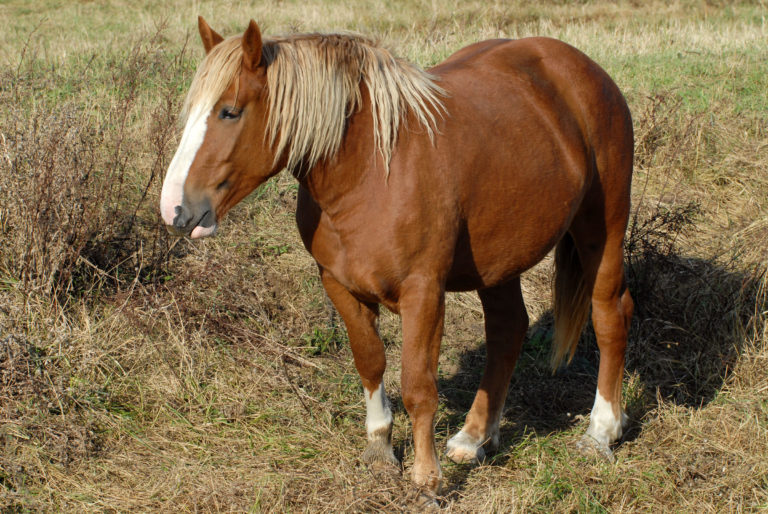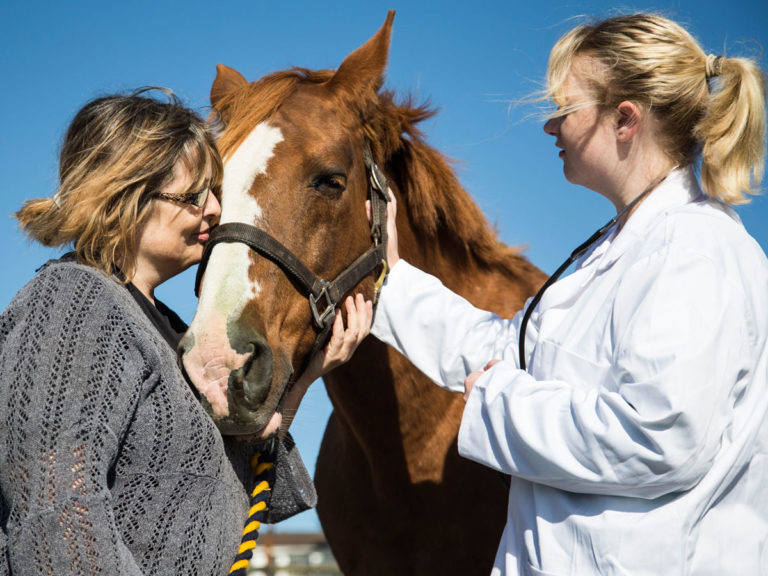
Physical health results from a combination of behavior, genes and access to good medical care. While we cannot change our genetic makeup, and our access to medical care will be influenced by where we live, we can exercise control over our behavior. We can make healthy choices about nutrition and exercise, plus control risky behaviors such as smoking and drinking.
Equine vets, like other workers in very physical jobs, have a higher risk for acute and chronic injuries. High levels of stress can encourage unhealthy habits. Taking care of your physical body can allow you to live a longer, happier life.
Good nutrition is the foundation for good health, and most veterinarians understand what constitutes healthy eating. Putting it into practice is harder!
Adopting a heart-healthy diet low in saturated fat and sugar and high in fiber, vegetables and lean protein can be difficult in the time-starved lifestyle of an equine doctor. It is infinitely harder to eat a salad than a sandwich while walking between stalls in the hospital or while driving an ambulatory vehicle.
Many equine veterinarians never sit down to eat breakfast or lunch unless they are behind the wheel. Often, they simply continue working until they are famished and irritable. This leads to scarfing down the first food they can find—which all too often is the box of donuts in the lounge or the slice of greasy pizza from the gas station. Feeding your body with respect for the finely-tuned organism that it is requires intention.
Consider packing a lunch (and a breakfast) of healthy foods such as yogurt, nuts, fruit, and/or leftover vegetables and meat/fish. Try to carve out 15 minutes to eat when you can experience the food you consume.
All the time spent behind the wheel or in the clinic can lead to weight gain because of inactivity. Stress also causes increased deposition of fat. Losing weight can be very difficult, so preventing gain is the best strategy. Exercise is important in this effort and is a great stress-reducer, as well.
Most practitioners working long days struggle to find time to exercise and must fit it in early in the morning or late in the evening. When on emergency duty, exercise often is impossible. However, new studies show that the recommended 30 minutes of daily moderate activity does not have to be achieved at one time; it can be spread throughout the day.
By adopting new habits of parking farther away from the front door of your office (or wherever you’re going) and taking the stairs whenever possible, you will add steps that will add incrementally to your fitness. Consider leaving your work truck at the office at night and biking to work each morning. If you can, carve out time for a short walk in a pretty spot each day. These mini-vacations will benefit your spirit as well as your body.
Unhealthy habits such as smoking and excessive drinking are often linked to stress. These addictions can be very hard to stop, but the benefits to your health are considerable if you can. Seek help from your health provider or a local support group. Strategies to decrease your stress and increase your exercise are often very helpful.
Some of the highest risks to your physical health in the equine veterinary profession are traumatic injuries suffered during work. Kicking, striking and crushing are all defensive behaviors that horses exhibit when reacting to or being apprehensive about painful or uncomfortable procedures.
Most equine veterinarians are tough and shake off injuries that others would give time to heal. Commonly, they fail to seek diagnostic or treatment services from a medical doctor trained for Homo sapiens. Prevention is the key to minimizing injury.
In your work, utilize experienced handlers, position your body in as safe a place as possible, use sedation when appropriate, use needed levels of restraint and protect your head.
The trauma you suffer during practice when you are younger will often cause chronic pain as you age. Your body needs to last for many decades, if not a century. Treat it with respect and loving care to have the best chance at a long and healthy life.
This article was brought to you by Merck Animal Health.








